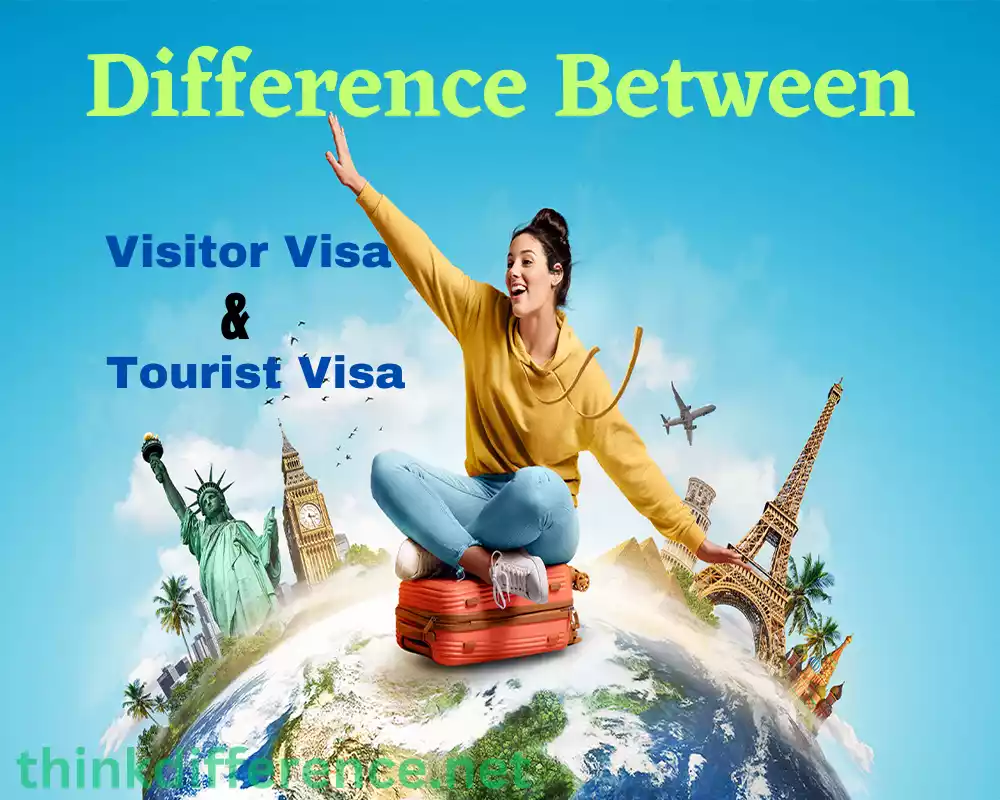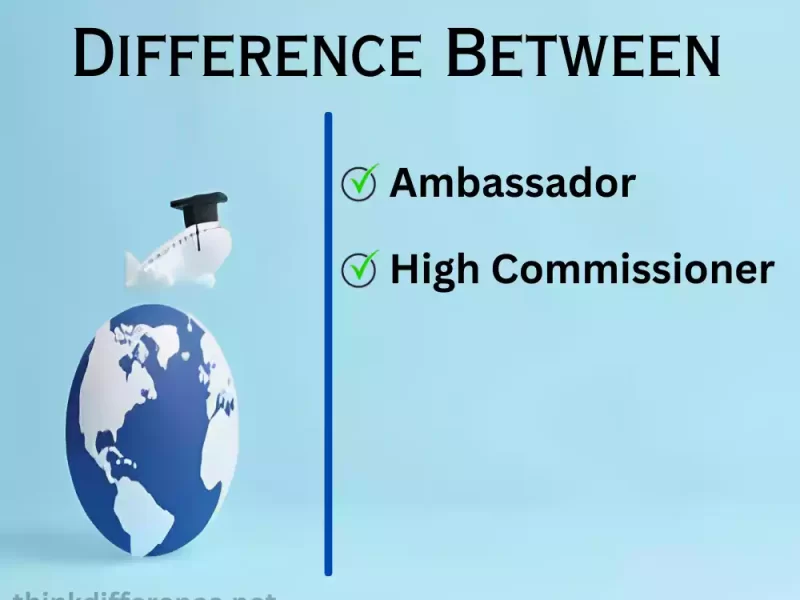Visitor and Tourist Visa are differences this article will examine. Knowing these two visa categories can make traveling overseas much simpler – whether traveling for pleasure or visiting friends and family! Let’s delve further into these types of travel documents!
What is a Visitor Visa?
Visitor visas, also referred to as temporary resident or non-immigrant status visas in some countries, allow individuals to temporarily enter foreign countries for various purposes ranging from tourism, business meetings or visiting family and friends. They typically grant these temporary residency permits only when someone intends on returning home once their stay has concluded.
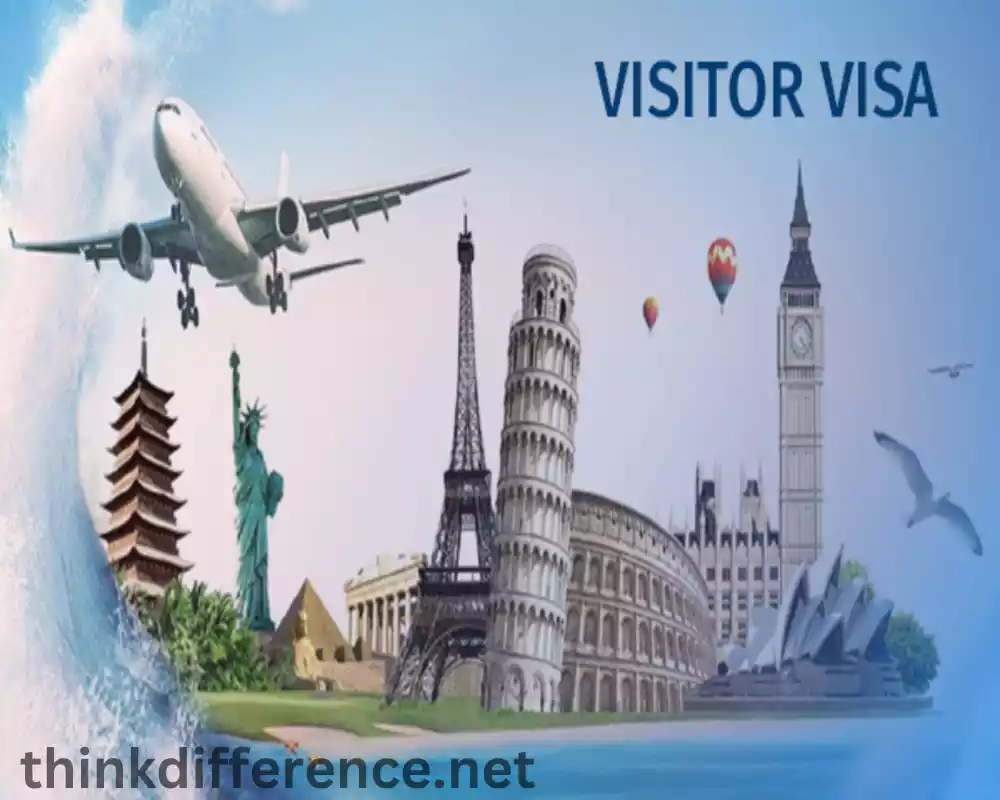
Visa eligibility criteria vary by country. Criteria can include length of stay and purpose for travel as well as financial ability to cover any associated costs.
An application for a visitor visa typically involves providing several documents. These could include an application form filled out, valid passport and proof of financial ability proof along with travel itinerary documents to support its purpose of visit. In certain instances, consular officers may conduct interviews in order to assess an applicant’s eligibility and intentions before awarding or rejecting it.
Visas issued to visitors may come with certain restrictions and conditions that must be fulfilled to avoid legal complications, including business or employment activities, length of stay restrictions and restrictions against working/studying without authorization. Visitors should abide by their visa’s conditions to avoid further complications in legal terms.
Regulations and requirements relating to visitor visas differ across nations, making the best place for individuals seeking information and applications for these visas is often the official embassy or consulate website of their destination country of visitation. For the latest updates in visa regulations for visitors it’s advised that individuals visit this official site prior to applying.
Types of Visitor Visas
Visitor visas have different purposes and names depending on where they’re issued. Here are some of the more prevalent visitor visas:
- Tourist Visa: Tourist visas are for people visiting another country solely to explore its culture or take vacation. Such a visa often has limited validity periods and may prohibit certain activities such as work and study from being undertaken during that trip.
- Business Visa: A business visa is a travel document which grants access into another nation for conducting business activities such as attending meetings or conferences or negotiating contracts. These visas typically granted to people representing their company or conducting business for another organization and typically come with restrictions as to which activities and duration they allow.
- Family Visit Visa: This visa is suitable for people wishing to visit family in another country for short visits or special events or provide support. Typically the applicant must show proof that there is someone living there as part of their family unit.
- Medical Travel Visa: Travelers who plan on receiving medical treatments abroad such as surgery or consultations require a medical travel visa in order to travel. You will need supporting documents like medical reports and letters or confirmation from hospitals.
- Visas for Conferences/Events: Some countries grant visitors who attend conferences, workshops, seminars or other events temporary visas in order to participate. Often the duration is only enough time for participation at that one event and may impose certain restrictions pertaining to non-related activities during that period of time.
- Visa for Religious Pilgrimage: Some countries provide travel visas for visitors seeking to visit religious sites and ceremonies or participate as religious pilgrims or travelers in such activities and pilgrimages. Such documentation of activities or pilgrimages will usually be required before receiving such a permit.
- Transit Visa: Transit visas are given to travelers who stopover briefly in a foreign country while on their travels and wish to remain there prior to continuing onward. They can exit the international area of an airport to stay for as little as one night before continuing with their journey.
Visa requirements and availability will depend upon your destination country to get accurate, current information on visitor visas, visit their respective embassy or consulate’s website.
Eligibility Criteria for Visitor Visa
Criteria for an eligible visitor visa vary based on both where and what kind of visa are being requested. Certain factors should generally be taken into consideration when assessing an applicant’s eligibility. We have listed here some key eligibility requirements below:
- Purpose of Visit: An applicant should clearly articulate why they wish to travel such as tourism, business travel, family visits or visiting relatives or friends for medical treatment as well as attending conferences recognized by immigration regulations in their chosen country.
- Intended Length of Stay: Visitor visas typically state a maximum stay length thus, visitors must demonstrate they plan on returning before their visa has expired.
- Financial requirements: In order to apply, an applicant will need to demonstrate they possess enough money for all expenses associated with their stay – accommodation, travel and daily costs should not require public support in any form during their visit.
- Tie to Home Country: To demonstrate their intention of returning after their visit, applicants typically need to show strong ties to their country of origin – such as employment or property ownership contracts, family obligations or social commitments that demonstrate they plan on returning – which will reassure immigration officials as to your intentions of coming home after your stay abroad.
- Travel History: When considering applicants, their past travel history should also be taken into consideration, specifically visits to various countries as well as any visa regulations which apply. A positive travel record that doesn’t violate visa restrictions or include overstays will further boost credibility of this applicant.
- Good Character and Compliance: To qualify for a visitor visa, applicants should possess both good character and compliance with immigration law. A history of violation could impede eligibility.
- Health and Medical Insurance: Some countries require visitors to provide proof of medical insurance for the duration of their trip in order to protect the healthcare systems of host nations from being overburdened with foreign visitors relying on them as healthcare consumers.
Since eligibility criteria vary depending on which country and visa you’re applying to, make sure to visit their embassy’s website to learn more about what may apply in that specific instance.
Application Process for Visitor Visa
As a visitor, applying for a visa may vary depending on which country and immigration policies apply, although there are some general steps you should follow when seeking one. Below is an outline of this process:
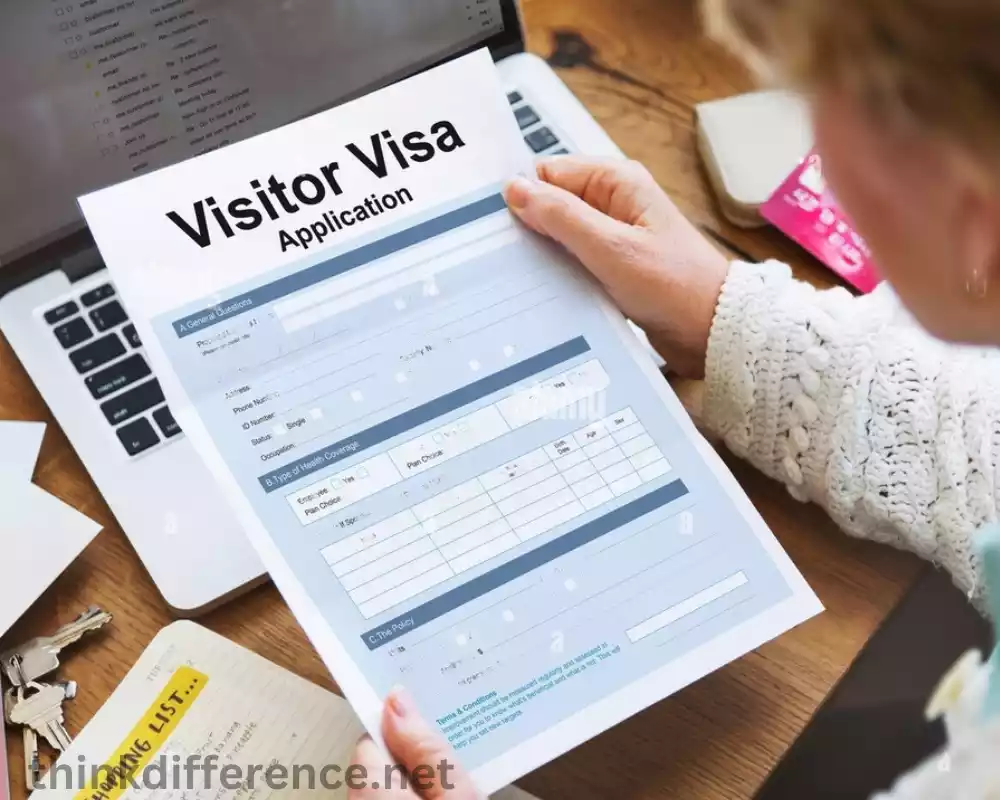
- Determine Your Visa Types: Determine which kind of visa best meets the needs and restrictions associated with your visit – such as business or family travel visas – by understanding its restrictions and requirements.
- Gather Required Documents: Assemble all of the essential documents necessary for your visa application process. These could include, among others, an Application form filled out and your valid passport with six month validity remaining, passport-sized photos of yourself as well as proof of itinerary (flight reservations or accommodation arrangements), bank statements from sponsors as proof of financial ability (bank statements/ sponsor letters are acceptable), invitation letters/or any relevant documentation related to why you wish to travel (such as sponsor letters etc), proof of itinerary/itinerary proof etc).
- Fill Out the Visa Application Form: Visa Application Form Complete and accurately the form with all required information including personal details, travel histories, the purpose of visit, as well as any additional requested data such as travel histories or any additional requested info.
- Pay the Visa Fee: Save your receipt as proof of payment fees and payment methods may differ depending on which country and visa type are being requested.
- Submit Your Application: For visa application submission, submit all supporting documents directly or by mail (depending on country) to the appropriate embassy, consulate or visa application centre. Your documents should adhere to any required formats or guidelines when submitted for review by immigration.
- Interview and Biometrics (if applicable): Some countries require applicants to provide biometric data such as photographs or fingerprints as part of the application process, while a consular interview might also be needed in order to ascertain eligibility and intentions of each applicant. Make an appointment if needed and bring along all supporting documentation as this could make all the difference!
- Wait for processing: Visa processing times vary significantly by country and volume of applications submitted to allow enough time for approval it’s important that applications be made well ahead of your intended travel dates and non-refundable travel plans should wait until this approval.
- Collect Your Visa: Once your visa application has been accepted, you can collect or have it sent directly back. In-person pickup may be possible or alternatively it can be sent directly back.
The above steps provide a general outline, while each country may vary significantly in their visa application processes. If possible, visit the Embassy website of your planned travel destination to gain further details regarding how their government handles visa application processes.
Duration and Conditions of Visitor Visa
A visitor visa varies based on which country and type of visa are approved.
Here are a few key considerations:
- Duration of Stay: Visas for visitors typically specify an upper stay period, this could range anywhere between several hours to several months, depending on your destination and purpose of visit. It is vitally important that visitors adhere to this limit to avoid serious travel consequences and prevent overstays from getting denied their stay visas.
- Multiple Entry or Single Entry: Visas vary considerably in their validity period – some only permit one entry, while others permit multiple. A visitor visa with multiple entries enables multiple visits during its validity period without needing another new visa for reentry if you leave and then re-enter.
- Activities Permitted: Visitor visas often place restrictions on what activities a visa holder can engage in during his/her stay, with tourist visas typically restricting work/study activities while business-related visas allow business-related activity but no employment. In order to comply with and understand visa conditions effectively.
- Change of Visa Status: Most visitor visas don’t permit an individual entering with such visa to switch into other types such as student or work visa without leaving and applying from outside.
- Prohibited Activities: Visitor visas often come with a list of prohibited activities, which might include paid work, starting a business and engaging in political activism. In order to avoid legal complications it’s crucial that visitors abide by these regulations and are aware of restrictions placed upon them.
- Compliance With Local Laws and Regulations: Visitors with visitor’s visas should abide by all local laws and regulations during their trip, respecting customs, custom laws and immigration requirements in addition to any specific immigration requirements for each destination country they travel through.
Duration and conditions for visitor visas differ between countries, so for detailed, up-to-date information regarding both duration and conditions please visit the respective embassy/consulate websites in each destination country that you intend on visiting.
Benefits of a Visitor Visa
An international visitor visa provides many advantages when visiting foreign lands for purposes other than mere tourism. Here are the main benefits associated with visitor visas:
- Business Opportunities: A visitor visa allows individuals to explore business opportunities in the host country. It enables attending business meetings, conferences, trade fairs or negotiating business deals. This can be beneficial for networking, establishing business contacts and exploring potential partnerships or investments.
- Educational and Academic Activities: Visitor visas often permit individuals to engage in educational or academic activities, such as attending conferences, workshops, seminars or conducting research. This can facilitate knowledge exchange, collaboration with experts and academic advancement.
- Family Visits: Visitor visas allow individuals to visit family members or friends residing in the host country. This enables spending quality time with loved ones, celebrating special occasions together and strengthening personal bonds.
- Medical Treatment: Visitor visas may be used for individuals seeking medical treatment in a foreign country. This allows access to specialized healthcare facilities, consultations with medical experts, or undergoing specific medical procedures not available in their home country.
- Cultural Exchanges and Performances: Visitor visas can enable individuals to participate in cultural exchanges, art exhibitions, performances or cultural programs in the host country. This provides an opportunity to share their culture, showcase talents and engage in artistic collaborations.
- Professional Development: Visitor visas can be beneficial for individuals seeking professional development opportunities in the host country. This can include attending training programs, workshops or skill enhancement courses to further their career prospects or gain new knowledge.
- Temporary Work Assignments: In some cases, visitor visas may allow individuals to undertake short-term work assignments in the host country. This could include consulting, training or providing services on a temporary basis.
- Personal Reasons: Visitor visas also cater to individuals who may have other personal reasons to visit a foreign country attending a wedding, graduation ceremony or a family event.
Conditions and advantages for visitor’s visas will differ based on immigration policies of each country as well as your purpose for visiting. You should read and abide by its terms and conditions to avoid facing immigration violations or other consequences during your trip.
What is a Tourist Visa?
Tourist visas are travel documents or permits that allow individuals to enter foreign countries for tourism and recreational purposes, typically within a specified amount of time and with activities like sightseeing, visiting historical landmarks, exploring culture attractions or taking part in recreational activities as an objective of their trip. They typically grant these to people intending to spend short time travelling through that particular nation before departing again later on for recreational travel activities or leisure purposes.
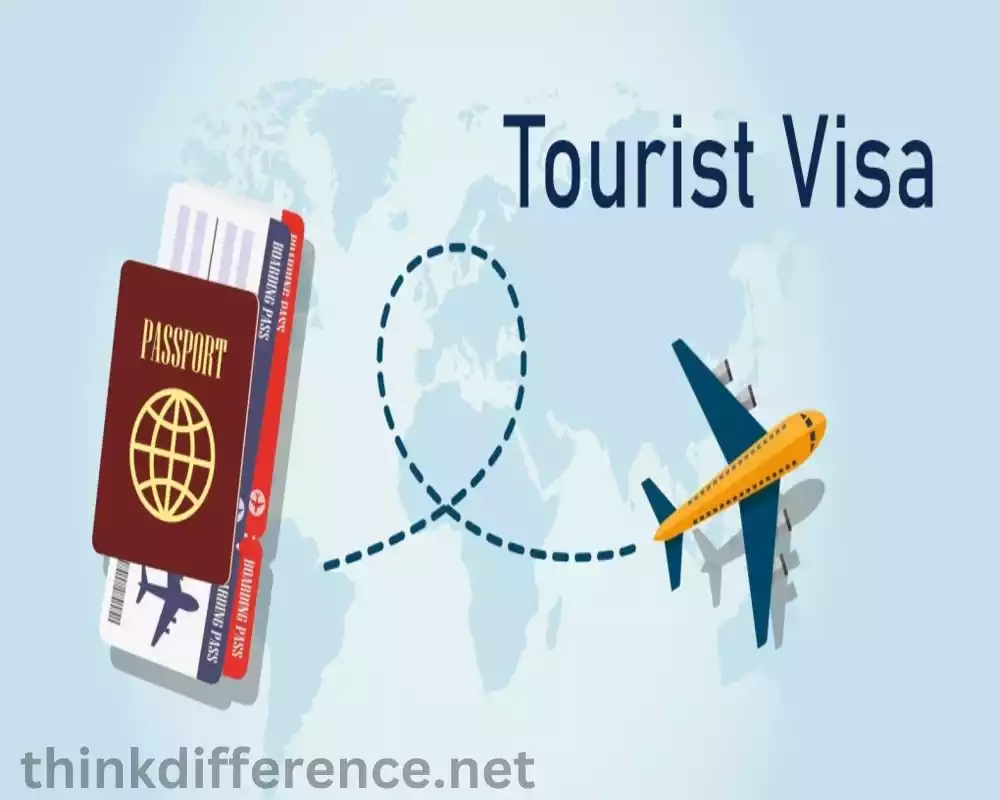
Tourist visas are short-term visas which specify how long an individual can remain in a given country, generally anywhere from several days up to weeks or even months depending on immigration policy of that nation. Overstaying this authorized stay could result in violations and potential penalties by immigration authorities.
Tourist visas can typically be acquired by making an application with the Embassy or Consulate of your intended travel destination and providing supporting documents such as your passport, proof of financial resources to cover travel costs and an itinerary/plans of return travel itinerary or proof. Please consult their official websites in order to gain accurate and up-to-date information on application procedures or specific requirements that might differ between countries.
Tourist visas do not authorize individuals to engage in work or business activity in their place of residency without first securing another type of visa, typically one designed specifically for business or work activities. You must abide by all restrictions and conditions associated with your tourist visa – this means respecting local laws and regulations as well.
Be mindful that terminology and regulations regarding tourist visas vary between countries. To avoid any problems it’s crucial that you familiarise yourself with what guidelines and requirements exist in each one.
Types of Tourist Visa
Visa requirements depend upon where you intend to travel, here are some of the more frequently required ones:
- Single-Entry Tourist Visa: This visa type only permits entry once within any specified time period and becomes invalid once they leave a country. They would then need a separate permit if they wish to return – they would then require new paperwork as their current one expires once leaving that particular destination country.
- Multiple-Entry Visa: This visa permits multiple entries and exits within a set time period, making this type ideal for travelers wishing to enter and leave the country more frequently or wanting greater flexibility during their trip.
- Short-Term Tourist Visa: Short-term visitor visas typically cover stays lasting only days or weeks and should be applied for by those planning short trips and visits with specific attractions in mind or events to attend. This visa type should only be granted as needed and for visitors planning such visits only temporarily, such as those visiting specific attractions or attending specific events.
- Long-Term Visa for Tourists: Certain countries offer long-term tourist visas to visitors looking to remain for an extended period, from several months up to an entire year. Such permits provide tourists with ample opportunity to fully immerse themselves into local culture or explore it extensively during their visit.
- Electronic Travel Authorization or eVisa: In some countries, electronic Travel Authorizations or eVisas can be obtained without having to visit an embassy or consulate; application and issuance processes for travelers who qualify are simplified further with an electronic link between an eVisa issued electronically to a passport for tourism entry purposes.
- Visa on Arrival: Many countries provide a visa-on-arrival service that allows eligible travelers to obtain tourist’s visas at airports or ports of entrance upon their arrival, eliminating the need to secure one ahead of time but being subject to specific criteria and requirements. This option does not need an advance application for approval but still must fulfill certain standards and criteria before being implemented.
Be wary that visa types and availability vary between countries. For accurate, up-to-date information regarding their requirements and options for their visit visa, consult the official websites of Embassies or Consulates located within that particular nation.
Eligibility Criteria for Tourist Visa
Criteria for visa eligibility vary according to your destination country.
Below are a few factors taken into account when assessing eligibility:
- Passport Validity: A passport should remain valid at least six months beyond your departure date in some countries. Others mandate this period as required for travel documents.
- Purpose of Visit: Your purpose of visit must be clearly articulated whether for leisure or recreation purposes only – but without making reference to being a tourist destination – should not be misrepresented as tourism-driven travel plans. Instead, provide a full itinerary including details regarding activities and destinations you intend to visit during this visit.
- Proof of Sufficient Funds: As part of your application for travel visa, it will be important to show proof that your funds can cover travel costs during your host country stay. Bank statements or sponsorship letters can serve as evidence that demonstrate this capability.
- Return or Onward Travel: In order to show that you intend on leaving the country, proof of return/onward travel tickets could be required as proof. This would show that your plans include travelling back home/onward destination following your stay here.
- Accommodation Arrangements: Establishing Accommodation Arrangements in Your Host Nation – Showing proof of hotel bookings or confirmed reservations as well as invitation from sponsors/hosts in the host nation can assist in securing appropriate lodging during your visit.
- Show Your Ties to Home Country: To convince immigration authorities of good reasons for returning home, demonstrating strong ties is critical in convincing them of this fact. You may provide proof of employment or property ownership family relationships or any obligations which require your presence there.
- Compliance With Immigration Laws: You must demonstrate compliance with immigration laws of each of the countries that you’ve previously visited; visa violations or immigration offenses could jeopardise your eligibility for a visit visa.
- Proof of Travel Insurance: Certain countries require travelers to have travel insurance that provides emergency and medical expenses coverage during their trip, so before travelling it’s wise to research all applicable requirements in that destination country.
- Non-Criminal Background: Be Prove of Non-Criminal Background You may need to submit a police clearance or undergo a background check in order to demonstrate that you don’t have an arrest history.
Eligibility requirements for tourist visas may differ depending on which country or purpose you visit, with additional requirements based on individual circumstances or purpose. It’s a good idea to visit the official embassy/consulate website for the country you wish to travel in order to receive up-to-date and accurate information on visa requirements for your intended visit.
Application Process for a Tourist Visa
Applying for a tourist visa varies depending on where you intend to go, here is an outline of steps typically involved when applying for such an authorization:
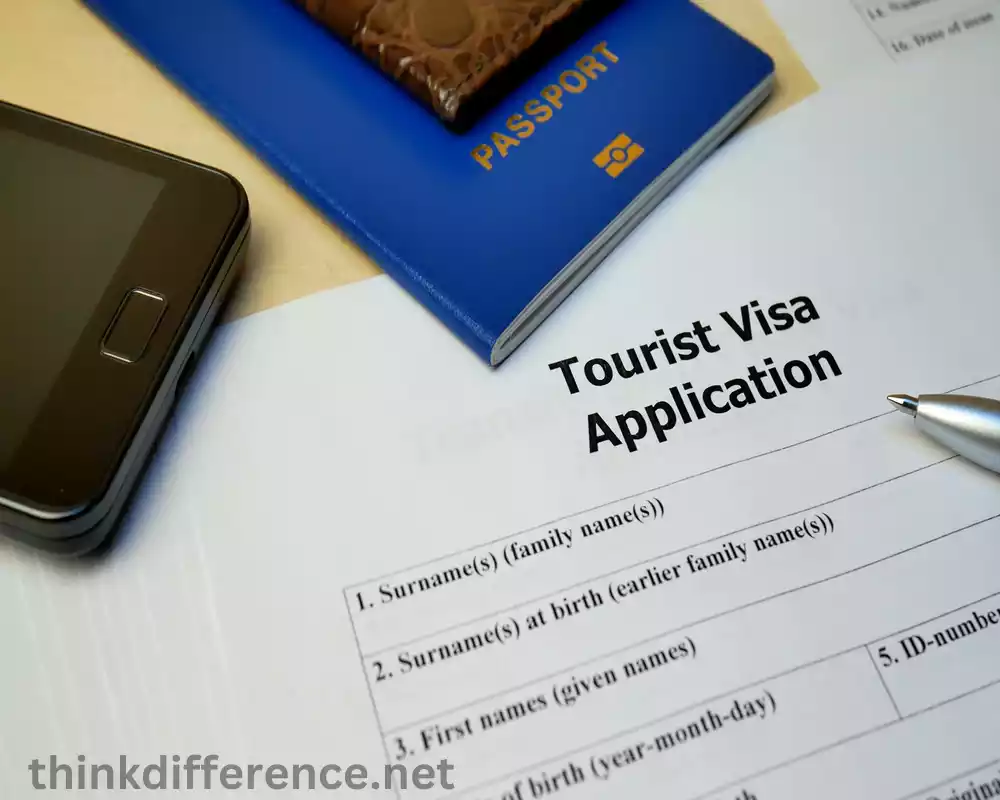
- Determine the Visa Requirements: Referring to the Official Website of the Embassy or Consulate in Your Destination Country to Assess Specific Visa Requirements is one way of gathering more details on what may be needed when it comes to applying for a visa in that specific nation, as you’ll discover information regarding process, documents required, fees payable and guidelines applicable in that particular case.
- Complete the Application Form: Forms may be obtained either online through consulate/embassy websites or directly in person. Complete and return all applicable application forms as soon as possible with all pertinent details including personal info, purpose of visit dates & accommodations details.
- Collect Documents Required for Tourist Visa Application: Gather all supporting documents necessary for applying for a tourist visa, including documents like your valid passport, passport-sized photos and evidence of itinerary (flight bookings or hotel reservations, for instance). Also required will be proof of financial ability to cover costs as well as travel insurance documentation as specified by an embassy or consulate.
- Pay Your Visa Fee: Determine the exact cost and method for paying the visa fee as instructed by the consulate or embassy. Pay via bank draft or cashier’s cheque as instructed – proof of payment receipt should accompany it!
- Submit Your Application: Follow these instructions to submit your application form along with all supporting documents in person at either an embassy or consulate. Your documents must meet all necessary standards, be organized as specified.
- Attend the Interview If Necessary (Recommended): Some countries require applicants to appear for an interview as part of their visa application process, if necessary. Schedule an appointment if this requirement exists and prepare yourself by reviewing all your documents and your application prior to attending your appointment. Be prepared with answers on travel plans or intentions that might come up during an interview session.
- Wait for Processing: Processing times for tourist visas will depend upon both your destination country and number of applications submitted to allow sufficient processing time it’s advisable to apply at least four months in advance of travel plans. Before making non-refundable plans until your visa has been approved.
- Collect Your Visa: Once your visa application has been accepted by an embassy/consulate office, notification will be sent out and you may need to collect it either personally or through an appointed courier service.
The steps outlined above offer an outline for applying for a tourist visa. Please be aware that requirements and procedures vary between countries – to get up-to-date and accurate information regarding visa application procedures for each destination country, consult their respective embassy/consulate websites directly.
Duration and Conditions of a Tourist Visa
Your visa for tourism depends upon where and when you intend to travel.
Below are general guidelines regarding conditions and duration for visas granted to tourists:
- Duration of Stay: A tourist visa authorizes temporary entry to a country for tourism-related reasons and stays can range anywhere from hours or even months depending on immigration policies. Generally speaking the letter of approval or visa itself specifies this duration.
- Single or Multiple Entry: Tourist visas come either with single entry or multiple entry capabilities, enabling the visa holder to only enter once with a single-entry visa before having it invalidated upon leaving. Multiple-entry permits multiple entries and exits within its validity period.
- No Employment or Business Activities: Tourist visas do not generally allow holders of such visas to engage in work-related activities or establish businesses within a foreign nation, making them suitable for tourism travel and leisure travel only.
- Prohibited Activities: Tourist visas usually contain restrictions and activities which are restricted. Visa holders are expected to abide by these limitations, such as engaging in political activity, engaging in paid employment, enrolling in education programs or exceeding the duration of your visa. In order to stay within compliance and not violate its conditions or limitations it’s imperative that they become familiar with all their specific terms and restrictions before traveling on holiday.
- Compliance With Local Laws and Regulations: When traveling on a tourist visa, it is your responsibility to abide by local laws and regulations of your destination country. Respect local customs and customary practices while adhering to immigration requirements as part of this commitment.
- No Change of Visa Status: Tourist visas typically don’t permit changes to visa status while staying within their home nation, which makes switching types such as student or work visa difficult without leaving.
Duration and conditions for tourist visas differ between countries. Please visit the embassy website in which your intended visit lies for more detailed information on conditions and duration.
Benefits of a Tourist Visa
Tourist visas offer many advantages when planning on traveling abroad for tourism purposes.
Here are the main benefits associated with tourist visas:
- Explore and Discover: With a tourist visa in hand, you’re able to visit and discover popular tourist sites across your host nation’s tourism map – be they historical landmarks, natural landscapes or cultural events. Immerse yourself into its culture while discovering new traditions as you learn its rich history and heritage.
- Leisure and Recreation: Enjoy leisure and recreational activities when visiting any country, be they beach activities, adventure sports participation, hiking in national parks or taking part in local festivals – you are bound to find activities which provide both leisure and relaxation in picturesque settings.
- Cultural Exchange: Traveling on a tourist visa provides you with an incredible opportunity to engage in cultural exchange. Interacting with locals allows you to learn more about their customs, traditions and way of living – while deepening your knowledge about their culture – broadening both perspectives.
- Personal Enrichment: Traveling and experiencing new cultures can be extremely enriching to you personally, helping broaden your perspective, gain new insight and form lasting memories that you will treasure throughout life. A tourist visa enables you to discover yourself while developing as an individual.
- Linking Up With People: Travelers on tourist visas have ample opportunity to meet an assortment of individuals – both locals and travelers alike – which presents plenty of chances to network, make friends and build connections that could prove both personally and professionally beneficial.
- Recreational and Wellness Activities: Many tourist destinations feature recreational and wellness facilities like yoga retreats and spas that you can utilize with your tourist visa, to relax, rejuvenate and enhance health and well-being.
- Tourism Industry Enhance: Tourism can play a vital role in stimulating economies across many nations. By spending on accommodation, food, transport and souvenir services when visiting with a tourist visa you are helping local economies by supporting businesses as well as job creation in that location.
- Lasting Memories: Traveling on a Tourist Visa offers immense reward and one of its greatest advantages lies in creating lasting memories. Your adventures and encounters may form the cornerstones of who you are today while providing stories to tell for years.
Be wary that the benefits of a tourist’s visa can differ depending on your destination and preferences, while it is vital that you abide by local rules and customs when traveling abroad.
Difference between Visitor and Tourist Visa
The terms “visitor” and “tourist” can often be used interchangeably depending on which country one resides in, though there are distinct distinctions that should be understood when discussing tourist visas versus visitor visas.
Here are a few key differences:
- Terminology: There is an important distinction in terminology. “Visitor’s visa” encompasses all forms of travel visas issued to visitors visiting a foreign nation – this may or may not include tourist visas, while “tourist visa” refers specifically to tourism purposes.
- Purpose of Visit: Visitor visas may be issued for various purposes, including tourism, business trips, family visits or medical treatments. As well as attending cultural events or social gatherings. A tourist visa specifically targets individuals looking to visit foreign nations purely for leisure travel purposes.
- Activities Permitted: Visitor and tourist visas enable individuals to engage in tourism-related activities like sightseeing, visiting landmarks or exploring cultural attractions. Visitor visas may allow additional activities depending on your purpose for visiting. You could attend business meetings, visit family or obtain medical treatment during your stay.
- Duration of Stay: The length of a tourist visa differs significantly from visitor visas. Typically it lasts less time in many cases and depends on its immigration laws in each country.
- Eligibility Criteria: While eligibility requirements for tourist and visitor visas may be similar, depending on your purpose of visit they could differ somewhat – for instance a tourist visa might place more focus on engaging in tourism while business-travel visas often require proof of business connections or an invitation from one.
- Conditions and Restrictions of Visas/Tourist Permits: Visitor visas and tourist permits can impose similar conditions and restrictions, such as time restrictions and compliance with local laws and regulations. You should review these details prior to accepting any such offer or visa and adhere to them accordingly.
Be mindful that terms used when distinguishing tourist and visitor visas may differ between countries. To get accurate and up-to-date information regarding categories and requirements of tourist and visitor visas in each destination country. We advise consulting the official websites of consulates prior to traveling abroad.
Conclusion
Acquiring a Visitor and Tourist visa opens up a world of opportunities to explore new destinations, experience diverse cultures, and create cherished memories. To ensure a smooth visa application process, follow the guidelines, provide accurate information, and be honest in your intentions. Respect the visa conditions and local laws during your stay to make the most of your travel experience.

